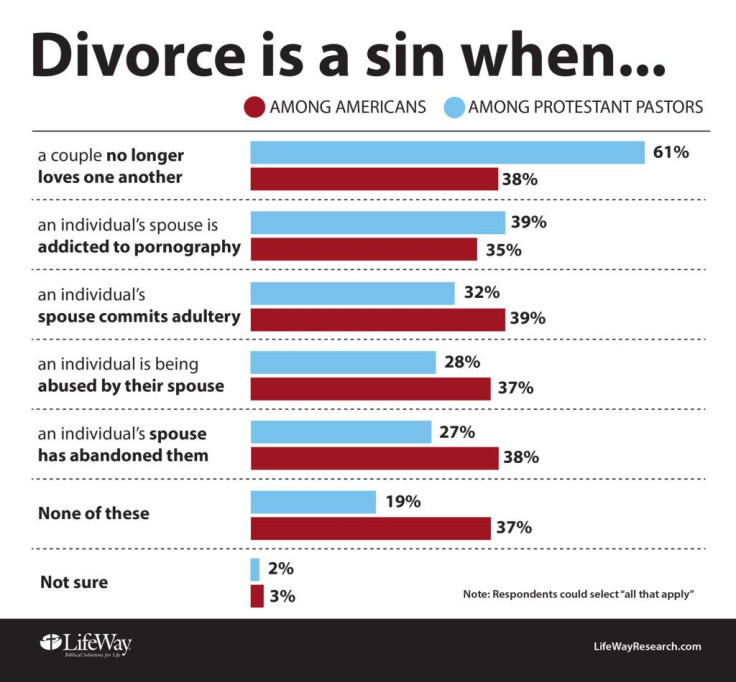Is Divorce A Sin? Even In Cases Of Adultery, Most Americans Say No

Breaking up is hard to do, but is it a slight against God? It turns out, a lot of people don’t think so. According to a new survey by LifeWay Research, most Americans believe divorce is not a sin if it is the result of adultery, abuse, pornography use or abandonment.
In a telephone survey of 1,000 Americans conducted last fall, 39 percent of respondents said divorce is a sin when an individual’s spouse commits adultery; 38 percent when the couple no longer loves one another; 38 percent when a spouse abandons the other; 37 percent when a spouse is abused and 35 percent when a spouse is addicted to pornography.
Another 37 percent of Americans said that none of the reasons listed above warranted the “sin label” in cases of divorce.

“About one in seven Americans are saying divorce is a sin in all of these cases, more than a third don’t think any of these would be a sin and almost half believe some circumstances would be sinful, but not others,” said Scott McConnell, vice president for research at LifeWay, in a comment to LifeWay Christian Resources.
The survey also delved into differences among the reactions of varied populations. Protestant church members, for example, seemed to align their views with the average American. Some 44 percent of Protestant church members said divorce is sinful when adultery is the cause, and 46 percent said it’s sinful when a couple no longer loves each other.
But in a separate phone survey of 1,000 Protestant pastors, the last reason evoked a different response: 61 percent of Protestant pastors called divorce a sin when the spouses stopped loving each other.
“Pastors make a distinction about the rightness of a divorce based on the reasons behind it,” said McConnell. “They want to account for the parts of Scripture that speak of possible rationales.”
© Copyright IBTimes 2025. All rights reserved.





















